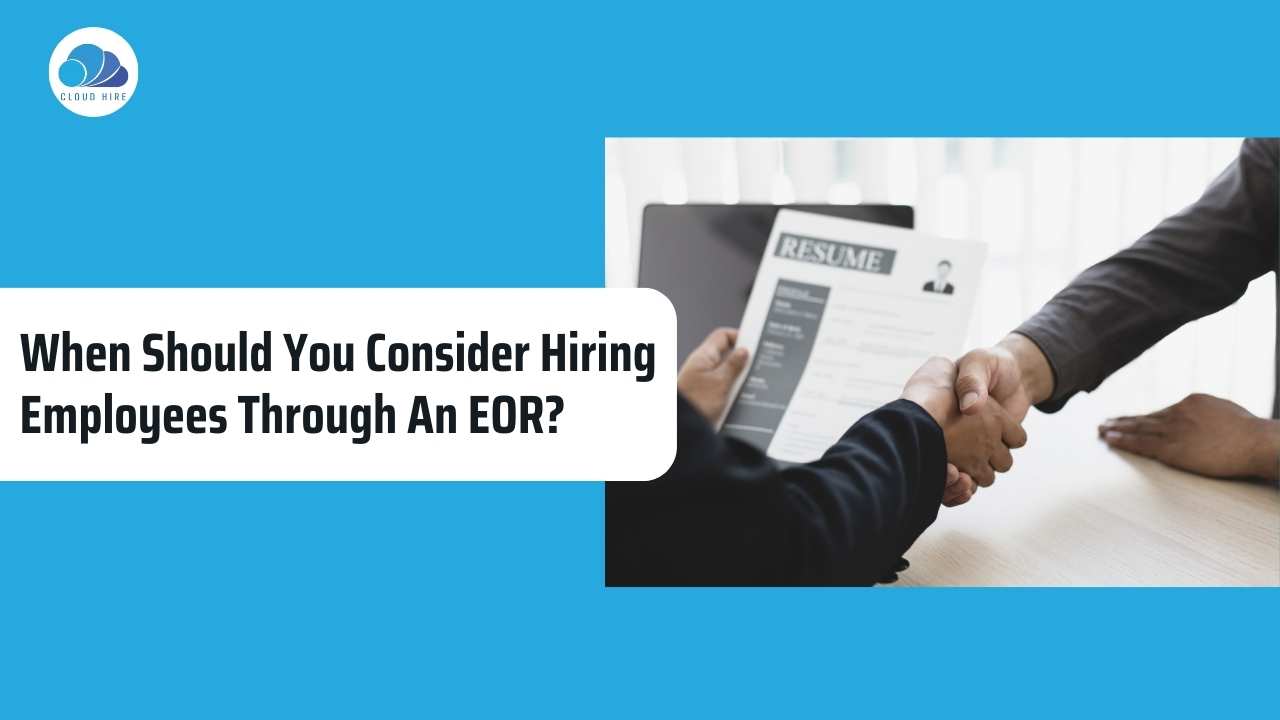Companies that build global teams need to decide whether they should hire independent contractors or full-time employees. Here’s when you might want to consider each option.
Growth is exciting: whether you’re looking to grow your team on a global scale or into a new market.
To make sure your team’s success, choose team members who share your mission and culture, no matter where they are. After you do all this hard work searching for the right talent to fit into your company culture, you may find yourself stuck deciding how to hire that talent because you lack the knowledge to handle international hiring.
This guide will help you determine if working with foreign independent contractors is right for your business, or whether it’s time to hire full-time workers.
The Eternal Question: Independent Contractors or Full-Time Employees?
Small businesses are faced with the question of whether they should hire full-time employees or independent contractors. Both options have their pros and cons: independent contractors allow you to cover a fluctuating workload without extensive training, while full-time employees allow you to build a steadier workforce to which you can offer competitive benefits if you want to keep them.
Now, the answer to who you should hire is simple: if you want to achieve global unity and success, it’s best to hire the best.
When working with independent contractors, you deal with invoices and foreign currencies. But when hiring full-time employees, there are a few more things to bear in mind. For instance, local employment laws regarding employment status and other compliance matters.
Let’s take a closer look at various ways independent contractors can help your business, and when hiring full-time workers through an employer of record is a better idea.
What Is an Independent Contractor?
Independent contractors are employees who work independently and on short-term projects. They take time off from their regular job and don’t have employers, but clients.
Many companies prefer working with foreign independent contractors because they can bring a fresh perspective and diverse expertise to the team, as well as a lower cost of living. When should you hire foreign independent contractors?
For example, if you hire a full-time account executive in Brazil with an annual salary of around $27,000 your employer costs may go up to $38,000 when you include mandatory benefits and taxes. So, it might be best to hire independent contractors if you’re hiring someone on a part-time basis, you just started your business, or want to avoid the riskiest option possible.
If these scenarios apply to you, then it might make sense to hire independent contractors:
- You have a fluctuating workload
- You’ve just started a business
- You want to run as little risk as possible
You Have a Fluctuating Workload
Hiring independent contractors mean that companies can bring on and let go of the right number of workers they need when they are needed. Businesses with temporarily fluctuating work needs can hire contractors to fill in until an appropriate permanent worker can be found.
Companies with seasonal businesses should consider the cost of hiring full-time employees. They are expensive and command higher salaries, which can be burdensome during a time of lower salary demands.
You’ve Just Started a Business
Startups often have limited budgets and need as much expertise as possible to get their business going.
In these situations, startups can work with independent contractors who already have their equipment, don’t need training, and are not entitled to employee benefits. This option is more affordable for startups that face hypergrowth.
You Want to Run as Little Risk as Possible
The best reason to hire an independent contractor is because of the less legal responsibility. If things go south, the contract can be terminated without any questions, and severance pay is not an issue.
For those working in a small business, the future can be unsure. When times are tough financially, it can mean that salaries and severance packages may not be paid. When working with contractors, it is easy to cease collaboration when things don’t work out. If your company becomes successful, you can always offer to convert these contractors into full-time employees.
What Is an Employer of Record?
An employer of record is an organization that acts as a legal employer of your full-time workers from other countries. The EOR carries all legal responsibility for your foreign workers, managing their contracts, onboarding, salary, employee benefits, taxes, background checks, and termination. At the same time, you remain in charge of the employees’ day-to-day tasks and workload.
Employers of record facilitate global hiring—ensuring you, as their client company, don’t run any compliance risks when hiring from foreign countries. The EOR’s legal team creates locally compliant contracts for each country you hire from and administers statutory employee benefits and legal requirements, such as minimum wage or paid time off.
If your business needs to grow beyond working with contractors, one of the fastest things to do is to hire a company to help you find employees in the country where you need them.
You need financial support from investors
Investors often rely on series funding to assess a potential investment. To attract funding and make your company more valuable, you must show that your team has stability and leadership in the long term.
You want more data security through company-provided equipment.
If you hire full-time employees, you can provide them with company-approved tools and equipment that you can track and protect. Moreover, you can implement several strategies, such as single sign-on, as an additional security measure.
You want intellectual property ownership
Independent contractors should be given the same protection from theft of their intellectual property as full-time employees. By hiring full-time employees through an EOR, you can ensure that your company’s work belongs to you.
As an EOR, CloudHire recommends and practices indirect intellectual property assignment: the employee’s intellectual property is first assigned to CloudHire, then reassigned back to you. This practice protects your ownership of your intellectual property in case of any problems.
Why Not Open a Subsidiary Instead of Hiring Through an EOR?
When you have a business relationship with a contractor that exceeds the legal boundaries of an independent contractor-client relationship, you may run the risk of being sued for worker misclassification. To avoid potential legal issues, you might consider opening a local entity in the country where you hire from. Although this can be a good idea if you want to open a subsidiary with a stable presence in your new market, many companies don’t want to do this because it takes time and money.
Here’s why:
- High costs and slow process
- High risk when entering new markets
- Permanent establishment risk
High Costs and Slow Process
Opening a subsidiary is a big investment. You need to hire lawyers, and accountants, and set up local bank accounts and payroll—which takes a lot of time—and that’s before you even consider hiring people. When you’re growing fast, you don’t want to risk losing great candidates. So hiring can take several months or more than the budget allows. It can also be difficult if you only want to hire a few people from different countries.
High risk when entering new markets-
Entering a new market is always risky. You could spend years and thousands of dollars gathering permits and documents, hiring people, and investing in marketing only to find that the new market isn’t responsive to your product or service. This would be a huge waste of time and money and probably extremely damaging for your business.
Permanent Establishment Risk
Hiring full-time employees through an EOR can reduce your permanent establishment risk because you don’t have a fixed business address or bank account in the host country. This is particularly important if you don’t generate a lot of revenue, as additional tax pressure from the host country would be unfavorable for your business because you’re still liable for tax.
Hiring with CloudHire—transparent, reliable, and hassle-free
Think of a global hiring process that doesn’t have the serious obstacles that come with hiring in a foreign country.
Imagine a hiring process that doesn’t cause you stress: no back-and-forths with local governments, no long paragraphs of foreign employment laws or compliance questions, just one simple application form to fill out.
Want to learn more? Talk to our experts today.








